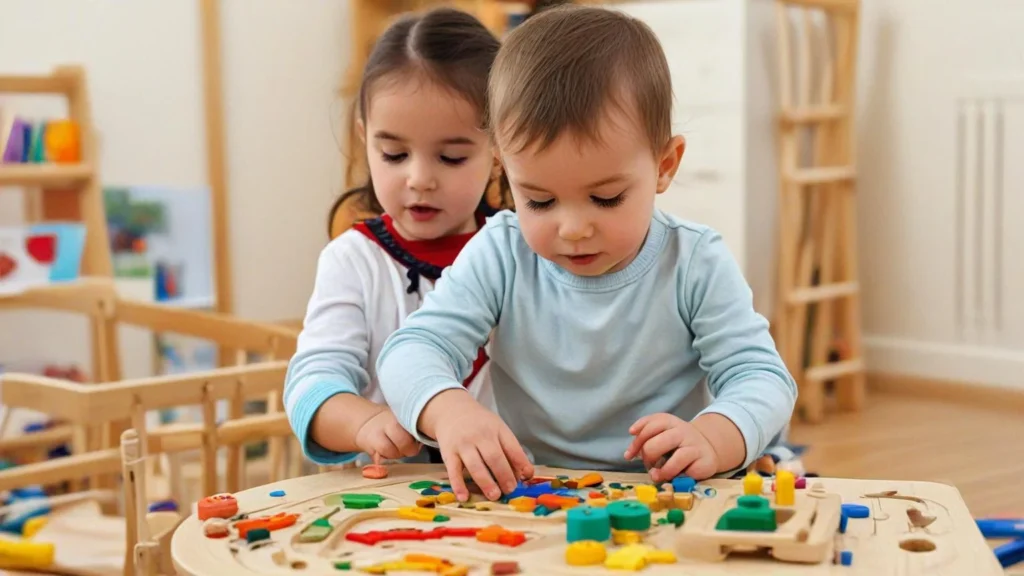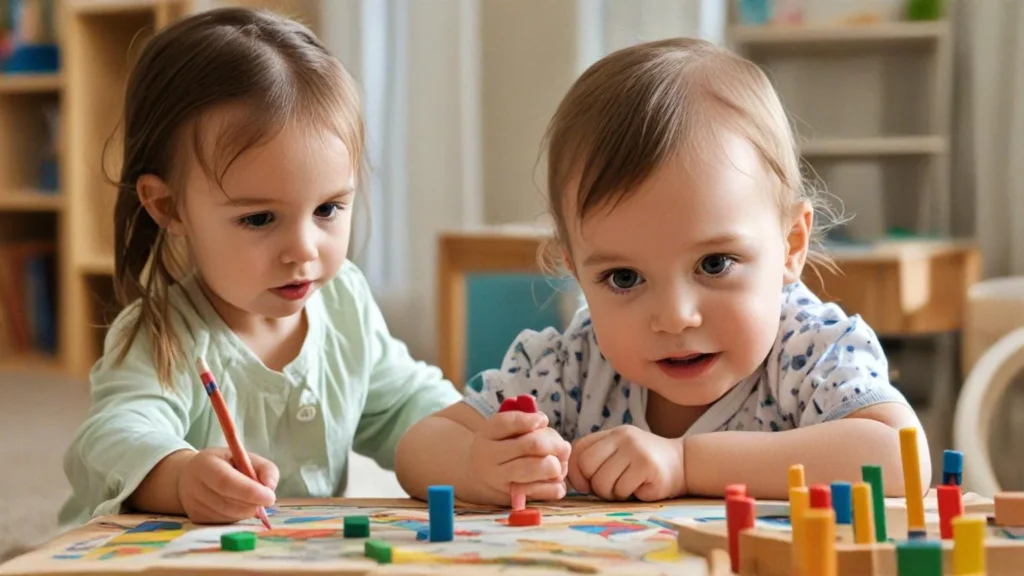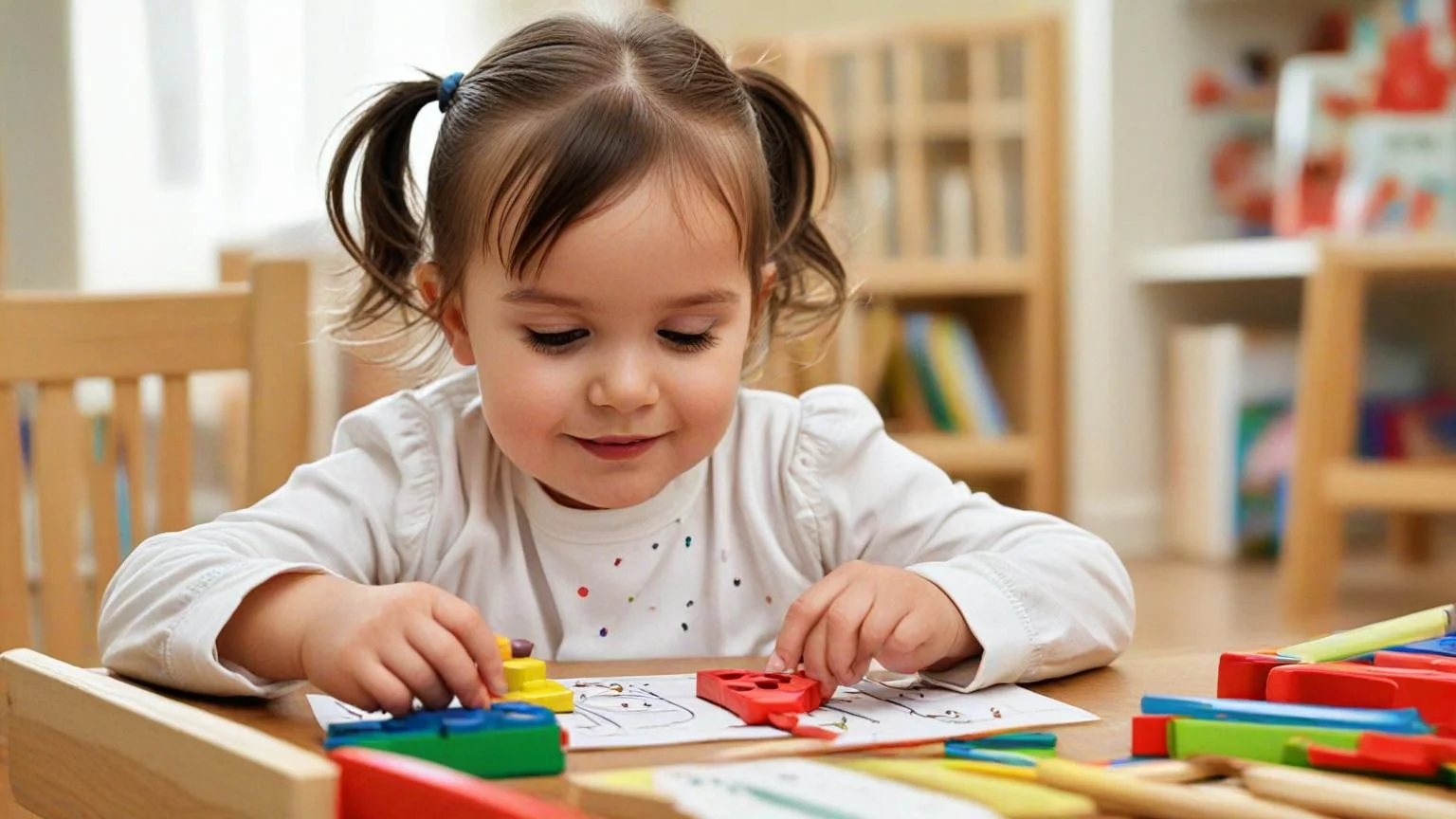Early childhood education (ECE) is the period of learning that occurs from birth to eight years old. This crucial stage in a child’s development lays the groundwork for their future academic, social, and emotional success.
In this article, we will explore what early childhood education is, its importance, the impact it has on individuals and society, and why the early years of learning are so vital. By understanding these aspects, you will see why investing in early childhood education is one of the most effective ways to support children’s growth and development.
What is Early Childhood Education and Its Importance?
Definition of Early Childhood Education
Early childhood education refers to the structured and informal learning experiences provided to children from birth to age eight. This phase encompasses various educational settings, including:
- Infant and Toddler Programs: Focus on developmental milestones and early learning experiences.
- Preschool Programs: Prepare children for formal schooling through play-based learning and socialization.
- Kindergarten: An introduction to formal education, bridging the gap between preschool and primary school.
- Primary Education: The early years of formal education, focusing on foundational skills in reading, writing, and arithmetic.
Importance of Early Childhood Education:
- Developmental Benefits: Early childhood education supports critical developmental milestones, including cognitive, social, and emotional growth. Children learn to communicate, solve problems, and interact with others in a structured environment.
- School Readiness: ECE prepares children for the academic challenges of school by introducing basic concepts in literacy, numeracy, and critical thinking. Children who attend high-quality ECE programs are better equipped to succeed in school.
- Long-Term Academic Success: Research shows that children who receive early childhood education are more likely to perform well academically throughout their school years. They are less likely to repeat grades or require special education services.
Example:
- A study from the National Institute for Early Education Research found that children who attended preschool programs were more likely to excel in reading and math in elementary school compared to those who did not.
What is the Impact of Early Childhood Education?

Short-Term Impacts
- Improved Social Skills: ECE programs foster social skills by encouraging children to work and play together. They learn to share, cooperate, and resolve conflicts, which are essential for building positive relationships. Example:
- In a preschool setting, children engage in group activities like building blocks or playing games. These activities help them learn how to work as a team and manage disagreements.
- In a preschool setting, children engage in group activities like building blocks or playing games. These activities help them learn how to work as a team and manage disagreements.
- Enhanced Cognitive Development: Early education stimulates cognitive development through activities that promote problem-solving, creativity, and critical thinking. Example:
- Activities like sorting objects by color or shape help children develop basic math and reasoning skills.
- Activities like sorting objects by color or shape help children develop basic math and reasoning skills.
- Emotional Growth: ECE helps children understand and manage their emotions. They learn to express themselves in healthy ways and develop resilience. Example:
- Teachers model and guide children in expressing their feelings and coping with frustration, helping them manage their emotions effectively.
Long-Term Impacts
- Academic Achievement: Children who attend quality ECE programs are more likely to achieve academic success later in life. They are more likely to graduate from high school and pursue higher education. Example:
- Research from the HighScope Perry Preschool Project showed that participants had higher high school graduation rates and better employment outcomes as adults compared to non-participants.
- Research from the HighScope Perry Preschool Project showed that participants had higher high school graduation rates and better employment outcomes as adults compared to non-participants.
- Economic Benefits: Investing in early childhood education has significant economic returns. For every dollar spent on ECE, there is a return of approximately $7 in the form of reduced crime rates, increased earnings, and lower educational costs. Example:
- The Heckman Curve illustrates that early investments in education yield high returns over time, benefiting both individuals and society.
- The Heckman Curve illustrates that early investments in education yield high returns over time, benefiting both individuals and society.
- Reduction in Achievement Gaps: ECE programs help bridge achievement gaps between children from different socioeconomic backgrounds. They provide equitable learning opportunities for all children. Example:
- Programs like Head Start aim to provide high-quality early education to children from low-income families, helping them enter school on a more equal footing with their peers.
What is the Importance of Early Years Learning?
Foundation for Future Learning
Early years learning is critical because it sets the stage for future academic and life successes. The experiences children have in these early years shape their learning abilities and attitudes toward education.
Example:
- Children who develop strong literacy skills in the early years are more likely to enjoy reading and succeed in school.
Building Basic Skills
Early years learning focuses on building foundational skills such as:
- Literacy: Developing reading and writing abilities.
- Numeracy: Introducing basic math concepts.
- Social Skills: Teaching cooperation, sharing, and communication.
- Emotional Regulation: Helping children manage their feelings and reactions.
Example:
- In kindergarten, children learn to recognize letters and numbers, which are essential for future academic subjects like reading and math.
Encouraging a Love of Learning
When children are exposed to engaging and enjoyable learning experiences, they develop a love for learning that lasts a lifetime.
Example:
- Activities like storytime or interactive science experiments make learning fun and stimulate curiosity.
What Happens Early in Life & Importance of Early Childhood Education?

Critical Brain Development
The early years of life are a period of rapid brain development. During this time, the brain forms connections that are essential for cognitive and emotional growth.
Example:
- Experiences during early childhood, such as reading books and playing with toys, stimulate brain development and support the creation of neural connections.
Influence of Early Experiences
Early experiences shape a child’s development and future learning. Positive experiences promote healthy development, while negative experiences can have long-term effects.
Example:
- Children who experience supportive and enriching environments are more likely to develop strong cognitive and emotional skills.
Importance of Supportive Environments
Supportive environments during early childhood include:
- Stimulating Activities: Activities that challenge and engage children.
- Positive Interactions: Supportive relationships with caregivers and teachers.
- Safe Spaces: Environments where children feel secure and valued.
Example:
- A high-quality daycare center offers a safe, stimulating environment where children receive emotional support and opportunities for growth.
Summary Table of Benefits
| Benefits of Early Childhood Education | Description |
|---|---|
| Improved Social Skills | Children learn to interact positively with others. |
| Enhanced Cognitive Development | Activities stimulate brain growth and learning. |
| Emotional Growth | Children develop emotional regulation and resilience. |
| Academic Achievement | Early education leads to better academic performance. |
| Economic Benefits | High returns on investment through reduced societal costs. |
| Reduction in Achievement Gaps | Helps bridge gaps between different socioeconomic groups. |
| Foundation for Future Learning | Sets the stage for lifelong learning and educational success. |
| Building Basic Skills | Develops literacy, numeracy, and social-emotional skills. |
| Encouraging a Love of Learning | Fosters a positive attitude towards education. |
| Critical Brain Development | Early experiences shape cognitive and emotional growth. |
| Influence of Early Experiences | Positive experiences lead to healthy development. |
| Supportive Environments | Safe and stimulating environments promote growth. |
Conclusion
Early childhood education is essential for building a strong foundation for children’s future academic and personal success. From developmental benefits to long-term economic returns, the importance of early education cannot be overstated. By understanding the impact of early childhood education, the significance of early years learning, and the importance of early life experiences, we can appreciate why investing in high-quality ECE programs is a crucial step toward creating a better future for our children.

